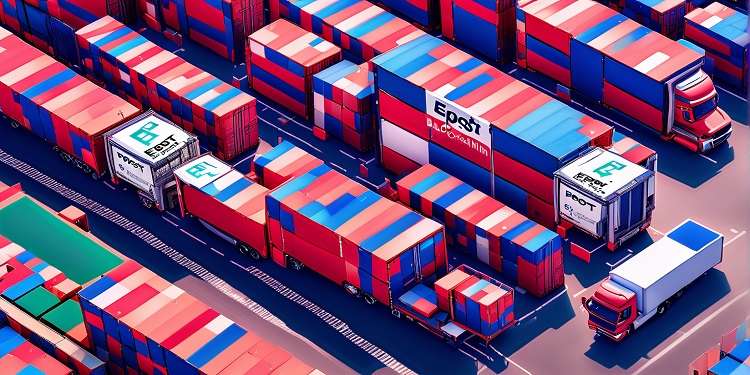The rapid digital transformation is significantly impacting the logistics and e-commerce sectors. Blockchain technology, which has seen widespread adoption in various industries, is now reshaping the traditional logistics landscape. One of the notable contributors to this shift is EPOST International Logistics Limited, a Hong Kong-based company that has gained industry recognition with its innovative “Logistics + Investment + Incubation” model.
The company recently announced its full-industry-chain incubation program across Asia and Europe. Industry observers view this initiative as a major milestone in applying blockchain technology to logistics. The program is expected to offer traditional businesses a path for digital transformation while promoting greater efficiency and transparency within the sector.
Enhancing Transparency and Efficiency
EPOST International Logistics Limited has strategically combined blockchain technology with smart contracts to streamline e-commerce logistics. By recording every phase of the logistics process on a transparent and immutable ledger, the company ensures heightened operational visibility. Smart contracts are employed to automate transactions, reducing the need for intermediaries and minimizing operational risks. This innovation is anticipated to significantly lower coordination costs and eliminate disputes, providing a more efficient and reliable logistics experience.
Furthermore, the company’s blockchain platform serves as a bridge connecting information flow, capital flow, and logistics management. Automated governance processes, including profit sharing and incentive distribution, are enforced through audited smart contracts. This transparent mechanism promotes trust among stakeholders and enhances transaction efficiency.
Dual-Currency System for Financial Stability
A noteworthy feature of EPOST’s ecosystem is its dual-currency system. This model facilitates seamless conversion between fiat currency, stablecoins, and platform tokens. By offering this flexibility, the system mitigates the risks associated with market volatility, ensuring secure transactions and protecting users’ assets. In an environment of increasingly complex supply chains, this financial model provides both investors and businesses with more robust asset management solutions.
Facilitating Cross-Chain Integration
To further extend its impact, EPOST International Logistics Limited has adopted cross-chain interoperability technology. This innovation allows the company’s blockchain ecosystem to integrate seamlessly with mainstream blockchain networks, unlocking a wider range of applications in global supply chains and logistics management. By breaking down technological barriers, the platform offers an inclusive digital ecosystem that encourages broader participation.
Businesses within the EPOST network can benefit from expanded market access and improved operational transparency. This integration is particularly beneficial for multinational logistics operations, streamlining cross-border transactions and enhancing supply chain visibility.
Industry Recognition and Future Outlook
Despite being a relatively new entrant, EPOST International Logistics Limited has established itself as a leader in blockchain-driven logistics solutions. Its innovative business model and strong technological capabilities have earned it a reputation as an industry benchmark. The recently launched incubation program is expected to further strengthen the company’s presence in the global logistics market.
With the logistics sector undergoing continuous digital evolution, EPOST offers opportunities for both industry veterans and emerging businesses to embrace blockchain technology. By participating in this digital transformation, companies can enhance their operational efficiency, reduce costs, and gain a competitive edge in the global marketplace.
As EPOST International Logistics Limited continues to lead the industry into a new digital era, its commitment to technological excellence and innovation is anticipated to redefine supply chain management and global trade practices. The company’s forward-thinking approach positions it as a key player in the ongoing evolution of logistics in the digital age.









